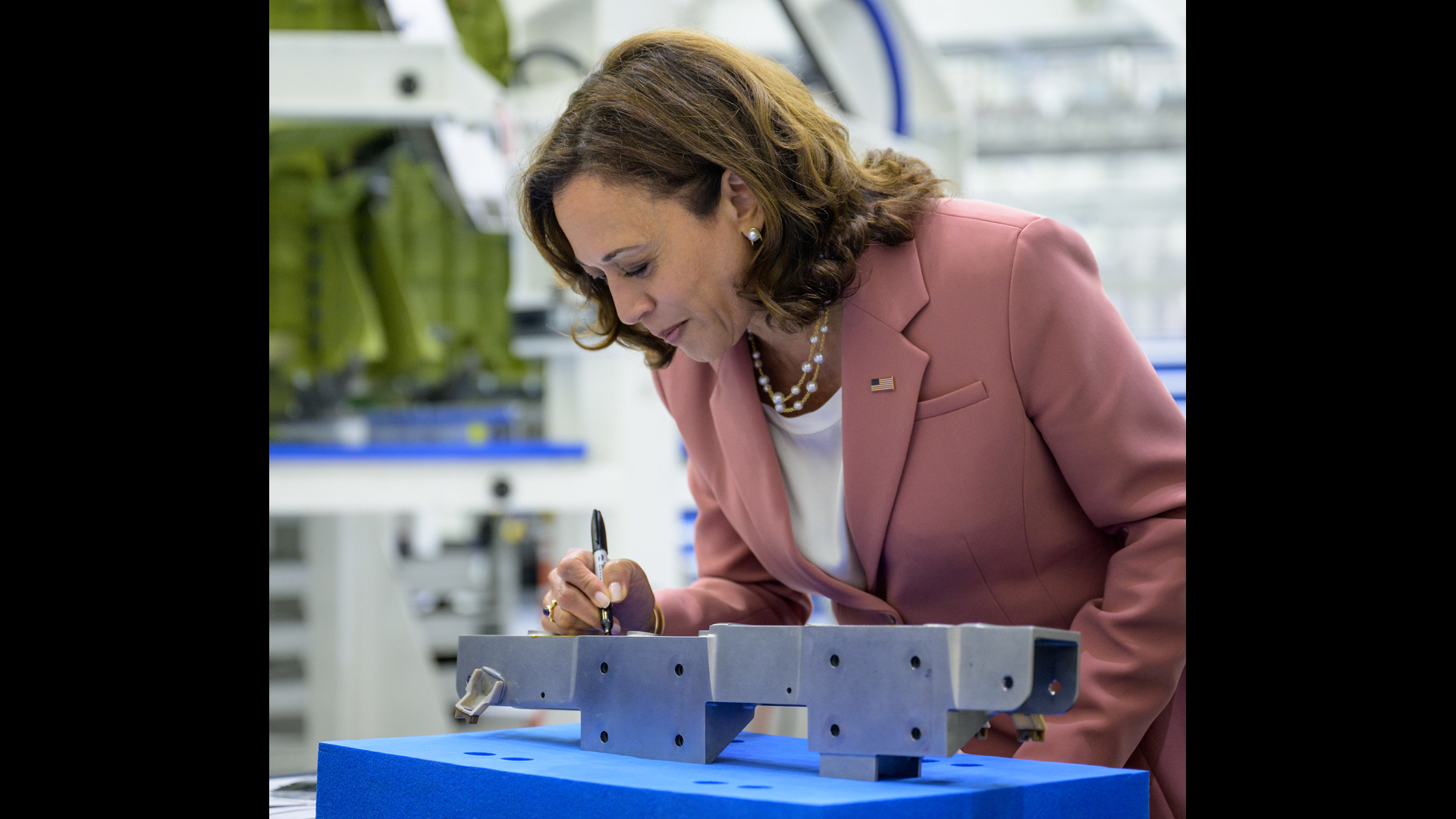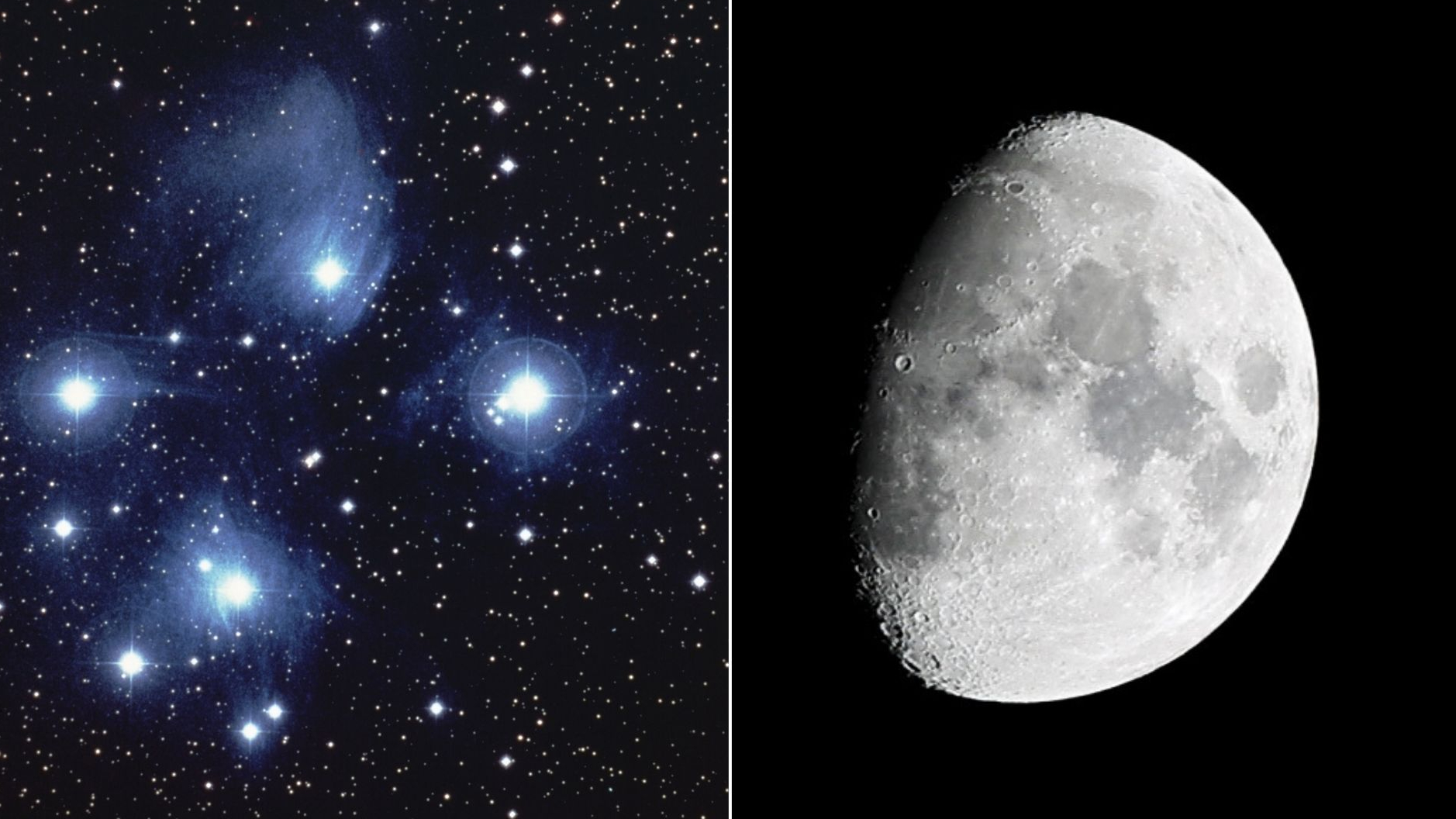VP Kamala Harris calls to diversify US space workforce
The White House recently announced a pilot training program that could bring more underrepresented groups into the space sector.

Space diversity will get a boost this fall from a new White House initiative.
Earlier this month, the White House announced a pilot program to increase training in the space sector with numerous space companies, led by Blue Origin, Boeing, Lockheed Martin and Northrop Grumman. (Other participants include SpaceX, Amazon and Rocket Lab, to name a few.)
"These pilot programs will help thousands of traditionally underrepresented workers in the space field learn the skills and access the opportunities they need to take on 21st-century space jobs," White House officials said in a fact sheet released on Sept. 9. The training will be centered in three locations: Florida's Space Coast, the Louisiana/Mississippi Gulf Coast, and Southern California. Few other details are available at this time.
The new push aims to bring more diversity to the space workforce through a wider swath of educational institutions beyond the Ivy League and other rich engineering and science schools. Examples include Historically Black Colleges and Universities, Tribal Colleges and Universities, minority servicing institutions, community colleges and trade/vocational schools, White House officials said.
Related: Space has a diversity problem — and big institutions like universities can do something about it
In remarks at a meeting of the National Space Council, held Sept. 9 at NASA's Johnson Space Center in Houston, Harris emphasized that jobs in the space sector don't necessarily require four-year degrees (which are often a barrier to diverse communities due to the investments of money and time involved).
"There are thousands more jobs for technical workers — good-paying jobs that often do not require a four-year degree, but are essential to our space program. These jobs are just waiting to be filled," said Harris, who chairs the council.
Breaking space news, the latest updates on rocket launches, skywatching events and more!
Examples of positions requiring only a high school diploma, the White House said in its roadmap, include welders, non-destructive testers, machinists, inspectors, industrial machinery mechanics and assemblers. An associate's degree from community college opens up such positions as avionics technician and quality control analyst. Salaries for such jobs start at around $35,000 a year but may go much higher.
Related: NASA, ESA experts weigh in on diversity and inclusion in space
U.S. space industry employment is at a 10-year high of 151,797 people, according to U.S. Bureau of Labor Statistics 2021 data parsed by the Space Foundation. That's up nearly 20% from 2016. (The numbers, however, track key job sectors linked with space rather than the space industry as a separate segment.)
Many of the companies participating in the new White House initiative are also signatories of the Space Workforce 2030 pledge, which promises workforce increases in women and underrepresented populations in the coming decade. The pledge was released in April at the 37th Space Symposium in Colorado Springs.
Current statistics on space diversity are not widely available, and collection methodology is somewhat patchy. That said, some efforts from a directorate at NASA and the United Kingdom's Space Skills Alliance suggest that women make up around 30% of the space workforce and people of color make up less than 32%, depending on the statistics set used.
Follow Elizabeth Howell on Twitter @howellspace. Follow us on Twitter @Spacedotcom or Facebook.

Elizabeth Howell (she/her), Ph.D., was a staff writer in the spaceflight channel between 2022 and 2024 specializing in Canadian space news. She was contributing writer for Space.com for 10 years from 2012 to 2024. Elizabeth's reporting includes multiple exclusives with the White House, leading world coverage about a lost-and-found space tomato on the International Space Station, witnessing five human spaceflight launches on two continents, flying parabolic, working inside a spacesuit, and participating in a simulated Mars mission. Her latest book, "Why Am I Taller?" (ECW Press, 2022) is co-written with astronaut Dave Williams.

